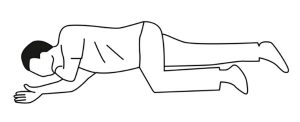Medical Amnesty & Good Samaritan Program
What Is It?
The Medical Amnesty and Good Samaritan Program is designed to encourage students to call for help during an alcohol-related medical emergency on campus. If a student is experiencing an alcohol-related emergency, we want their friends to get them assistance instead of worrying about getting in trouble. This program has the potential to remove formal university disciplinary action, but may still include an educational component.
The program is twofold, applying to both the student experiencing the emergency (Medical Amnesty) and the person who makes the call to get them help (Good Samaritan). It is important to note that the request for help, such as a phone call to the police, must come from a student. If an RA makes the call for example, this program does not apply, because this would fall under the RA’s official job duties.
Alcohol overdose, sometimes called alcohol poisoning, is a medical emergency and must be treated as such. We want to encourage bystander responsibility and minimize any barriers which might prevent a student from calling for help in this situation.
Alcohol Overdose
Medical help must be obtained if a person is experiencing any of the following:
- unresponsive
- unable to stop vomiting
- pale skin and blue lips
- slow, shallow, or irregular breathing
- incoherent and unable to make rational responses
Noticing these signs is the first step towards getting help. Even if these signs are not present, paying attention to a gut feeling is important, and checking on the person is a logical next step. A simple way to remember what to do is Wake, Turn, Call, Stay.
First, try to wake them up. If you are unable to do so, this person is unconscious and at serious risk. Turn them on their side to keep their airway clear. This is called the recovery position [pictured below]. Leaving them on their back or stomach can put them at risk of choking on their vomit.
Once the person is cared for, call for help. You can call 911, but calling the University of Maine Police Department (UMPD) directly is faster. Their number is 207-581-4040. As you wait for help to arrive, stay with the person to make sure help can find them easily.
Program Goals
- To reduce the risk of student death or serious injury due to alcohol overdose
- To improve student awareness of high-risk drinking, alcohol overdose, and underage drinking
- To encourage students to take care of one another through Bystander Intervention techniques
Eligibility
In partnership with the Department of Community Standards, Rights, and Responsibilities, each situation will be considered on a case by case basis. This process will take into account all factors of a given situation to determine whether or not a student is eligible. Students who call for assistance to help an intoxicated person, and who themselves may be in violation of UMaine’s Alcohol Policy, will also be considered for acceptance. The caller must stay with the person until medical help arrives in order to be eligible.
Acceptance does not preclude a student being cited by police or any action by the Office of Residence Life or other departments. Students with multiple alcohol violations and a history of conduct code violations will not be eligible for the program.
Students may be eligible if they meet one of the following criteria.
- Have not previously been accepted into the program
- Receive medical treatment for an alcohol-related incident
- Report an alcohol-related incident or act on behalf of a student who requires medical attention
Requirements
Once a student is covered by this program, they must complete the following.
- An educational component. This may include a meeting with the Dean, an alcohol education program, and/or a call to the students’ parents.
- All terms of the program as determined by the conduct officer. Failure to do so could result in non-compliance under the student conduct code.
Organizations and Groups
Circumstances in which an organization is found to be hosting an event where medical assistance is sought for an intoxicated guest, the organization may be held responsible for violations of the UMaine’s Alcohol Policy, state laws, or local laws. However, the organization’s willingness to seek medical assistance for a member or guest will be viewed as a mitigating factor in determining a sanction for any violations. Individuals within the organization may eligible for the Medical Amnesty and Good Samaritan Program.
Maine State Laws
The State of Maine has similar laws put in place that process similar situations regarding criminal proceedings. The protections put into place via these laws will protect students from criminal charges. Read more about these laws here and here.
Questions?
Contact Student Wellness at um.swell@maine.edu.

